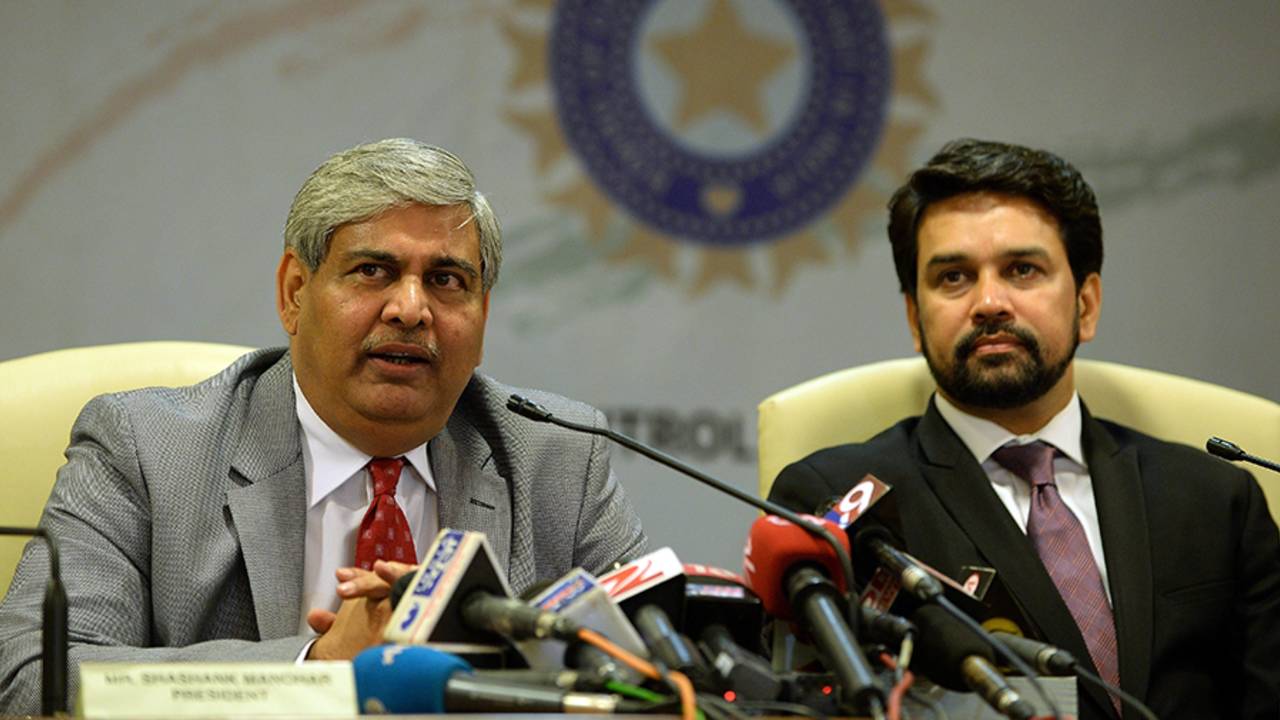ICC chairman
Shashank Manohar's plans of translating what he calls his "personal opinion" of a structural imbalance in the world body into the BCCI's official position may face some resistance within the Indian board. The key sticking point among BCCI officials who spoke to ESPNcricinfo is that it would deny India its rightful share of the ICC's revenues, as they feel has been the case over the past decade or so.
Manohar, who is also the BCCI president, had said in his interview that he didn't agree with the present revenue-sharing formula that was arrived at after the sweeping administrative reforms in the ICC last year. "It's nice to say that India [BCCI] will get 22 percent of the total revenue of the ICC, but you cannot make the poor poorer and the rich richer, only because you have the clout," he had said.
Long-time administrator
Niranjan Shah, who is also president of the Saurashtra Cricket Association, said Manohar's ideas on revenue-sharing were "debatable" but agreed with his main contention that the big three shouldn't bully other nations. "We must look at other teams also, without them competition is not there and if there is no competition there won't be money for India also," Shah said.
"But some time ago, some boards tried to float the idea that they should also get revenue when India earn. That was not right. Until recently, every Test playing country were getting the same amount of money, about $11 million per year, where India would contribute around Rs 80 crore ($12m) from two ODIs. The amount was totally disproportionate.
"Maybe now, the proportion [of revenue] can be fractionally reduced to give more to the needy boards. We have to find a middle way. This is Manohar's idea, but inside the board also collective decision has to be taken."
Quite a few administrators that ESPNcricinfo contacted - most of whom spoke on condition of anonymity - admitted to being in the dark about Manohar's plans and felt he was compromising the BCCI's interests, especially on the financial front. "No question that India's contribution is maximum," a BCCI official said. "We have only asked for our rightful share. That [strengthening other countries] is okay but we should not surrender what we are getting today."
Another office-bearer said he had concerns over the wider practical implications of a change to the revenue-sharing system. "The BCCI has 25 states that are members, and six or seven states who are going to become members in the entire north-east region, and building stadia is costly," he said. "Today you have other sporting leagues mushrooming, and you want to maintain the paramountcy of cricket. If this comes up in the Working Committee, it could face some opposition."
There is a theory that Manohar's views on the revenue-sharing arrangement are guided by the need to pre-empt the Lodha Committee's report next month, which is expected to recommend reforms to the board's constitution. One member said that Manohar's statements might be a plan to insulate the BCCI from any action taken by the Supreme Court. "Manohar probably wants to impress upon the Lodha Committee that we are not for money."
